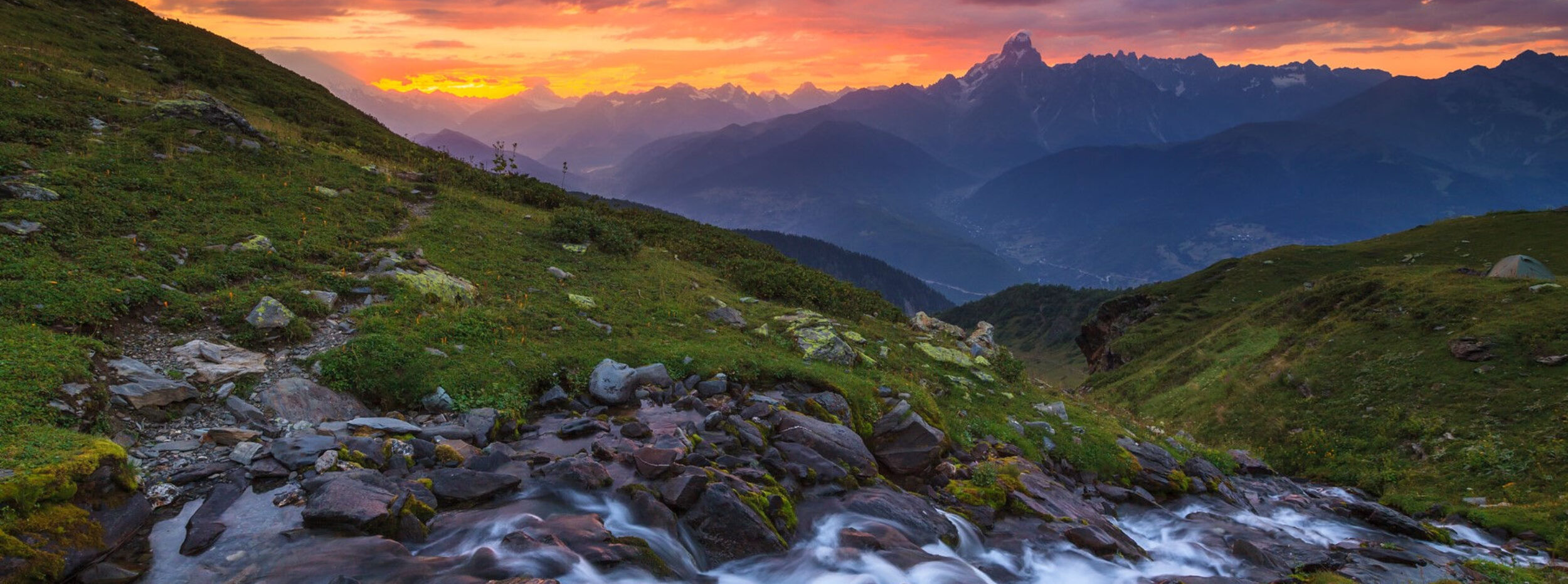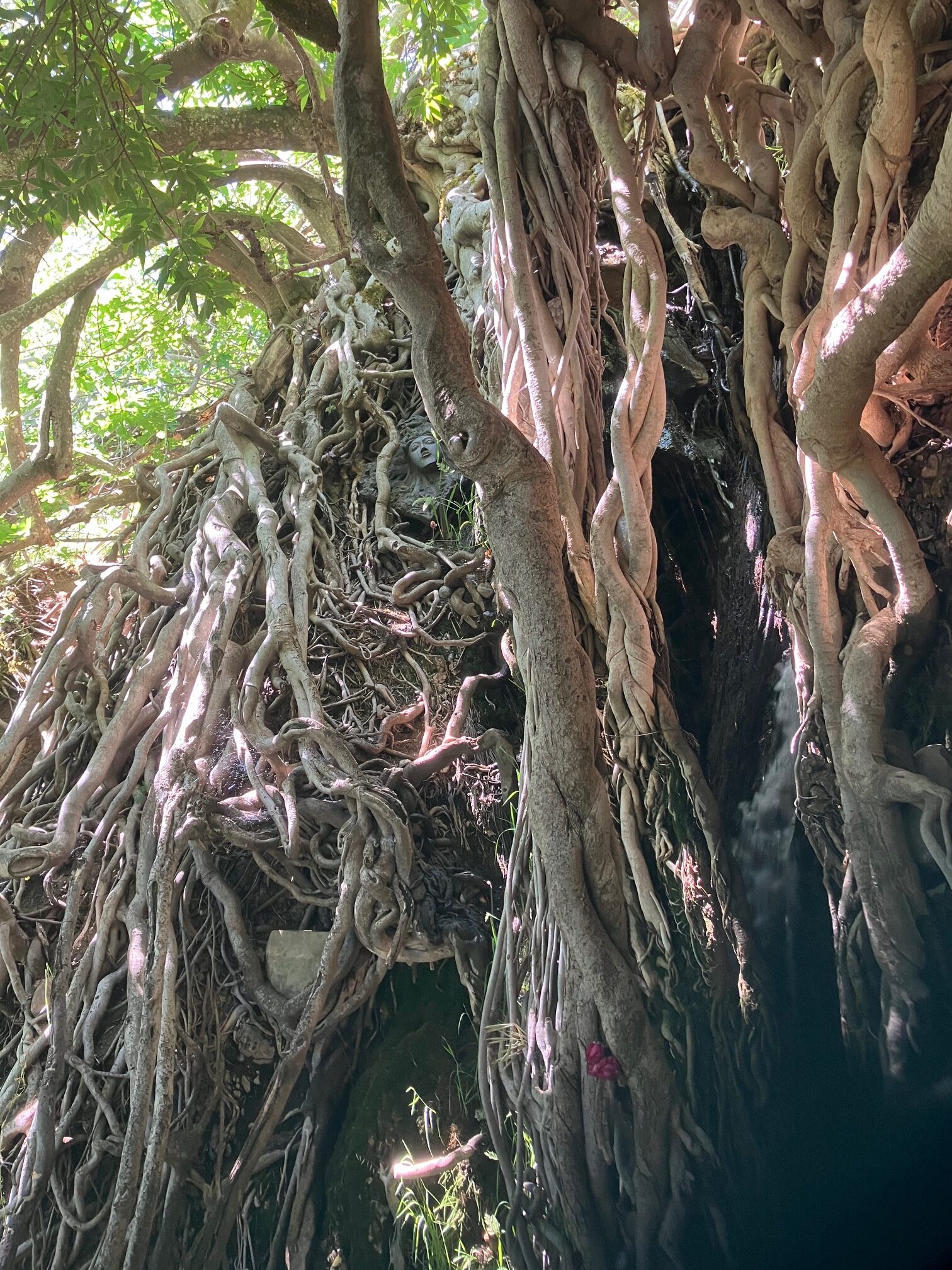What will it take to remember that we are not nail, gear, or hinge, but River, Robin, and Fig?
(Enjoy this 7-minute read or let me read it to you during your next walk, commute, or quiet time).
We’ve always looked to the world around us for queues and clues on how to live. Once our teachers were rivers, robins, and the cascading tangles of fig roots. Now we surround ourselves with cars and stoves and screens. They teach us how to operate like machines not how to live like beings. These tools we created to meet the wild mystery of life have now replaced the gods, shielding us from the harshly enchanting reality of a living world, convincing us that we exist within a city, a suburb, a supply chain – and not within a watershed, a food forest, a climatic zone.
We’ve come to believe that the gods are simply our creation, something we can make or unmake, something that – like the world itself – exists to serve us. So we wonder why we aren’t given the lover we long for, the prestige we work for, the security we sacrifice for. Machines take input and create reliable output. They cannot teach us about loneliness, or love, or generosity – the things we need to survive. If we model our gods on them, and we are shafted, we must be deeply flawed or they must not exist. Nihilism, despair, obsessive self-improvement result.
But the gods are all around us, as they have always been, if we look past our self-referential built world to how living things really interact as a model of our own lives.
The robin’s beak knows no morality. Only hunger and opportunity. We – a wayward insect on our way to leaves or water – ignorant or unaware for only a moment and that is all it takes. We must study the path we plan to take, observe those who have gone before us, watch for how conditions shift. But the moment comes when we are driven forward, with whatever we’ve managed to learn. It may save our lives or we may be overtaken by something quicker, more cunning, more hungry than we. That is the risk we all must take.
The fig shows us how many ways we can branch from the central stem, and yet no matter which direction we go, all we can do is leaf out in our signature shape. The sun and shade move to their rhythms, the rains and dry spells intermingle, and there is little we can do but turn our faces and breathe. We are planted in this time and place. We can do little to influence the conditions that shape our lives. But we all have the same access to this moment and this space. We can turn our attention to what feeds us. We can inhale and expand. What we become is never of our making; it is the unfolding seed within us born to feed our neighbors. Not some other fruit in some far off land, but exactly where we stand.
The river knows only gravity – behind and ahead – and the quickest way around given mass and velocity. It is the primal mathematician and quintessential mystic – perfect calculations embodied in absolute surrender. It does not envision the ocean or multi-hued canyon walls. It simply follows the momentum around whatever it encounters – there is never time to choose. The decisions we agonize over have usually already been made – somewhere deep in our past or in someone else’s present, perhaps even in a future that draws us into itself. We are swept up in something so much more powerful than ourselves, serving the creation of something we cannot possibly imagine and will likely never see. But we can feel the chill, the collision, the eddy, the sun on our backs. We may not know where we’re going, but we’re headed somewhere.
Three teachers among millions, unfolding their wisdom with every movement if we have the patience to be still and watch. But my mind does not reach out to them. It clings to what have become the saviors of my world: agendas and timelines and persuasion. That is how I’ve learned to build shelter, produce fruit, fatten fowl. That is how we’ve come to translate water, sunlight, and soil into spreadsheets, strategic plans, and slide decks, and despair that we – we – are alone in all the cosmos without a hope or friend.
If you asked anything – and it could tell you – it would probably answer the same as we: “I’m just doing what I can to survive.” But we – we – can see the poetry and wisdom in it if we remember to ask “how”. Then we can receive in an hour for the bargain price of attention what we spend months and wages for a whiff of out in the wilds of concrete and glass. Because perhaps how we survive in the world – the real world of wind and rain, drought and famine – is what everything else has already learned.
What will it take to pull them near? To let them remind us daily that we are not nail, gear, or hinge, but River, Robin, and Fig? To let those of us they speak to attune our minds and hearts to their voices for all those who cannot hear, who cannot see the life lessons woven into splash, beak, and branch. We must be mindful where we turn our ear; wary who crosses our threshold. For they become the muddy bank we root within, the morsel in our beak, the shape of our flow.
What we surround ourselves with become our gods. May they be the true gods living through the heart of each creature. Not the false gods we create to shield ourselves from Mystery, slake our fear while feeding our desolation.
Do not despair, Little One, of all you have forgotten and how often. There is only one shape of leaf you make and all you need are time, light, and firm footing, and you will rejoin the world in your rightful place again. Your shame is your gift. You know which god you’ve betrayed. Don’t waste time confessing. Simply pray for help remembering. And let your life become that prayer.
Nancy
A bow of gratitude to the Fig at the heart of Harbin, the River that ran through its roots, and the Robin that hunted along its banks. They gifted me these words to offer you.
Discover more from InnerWoven
Subscribe to get the latest posts sent to your email.


And a bow to you and they, for bringing these words onward to me, and now perhaps through me to others, via a simple link to here…. 🙏🌻💕
Thank you so much for sharing your gratitude, John. May these (and all our) words spread far and wide to find soil where they belong!